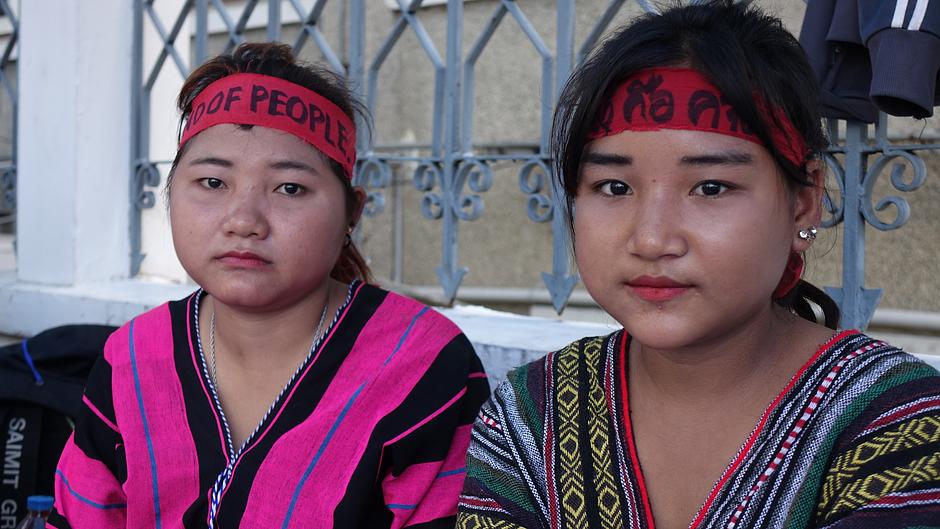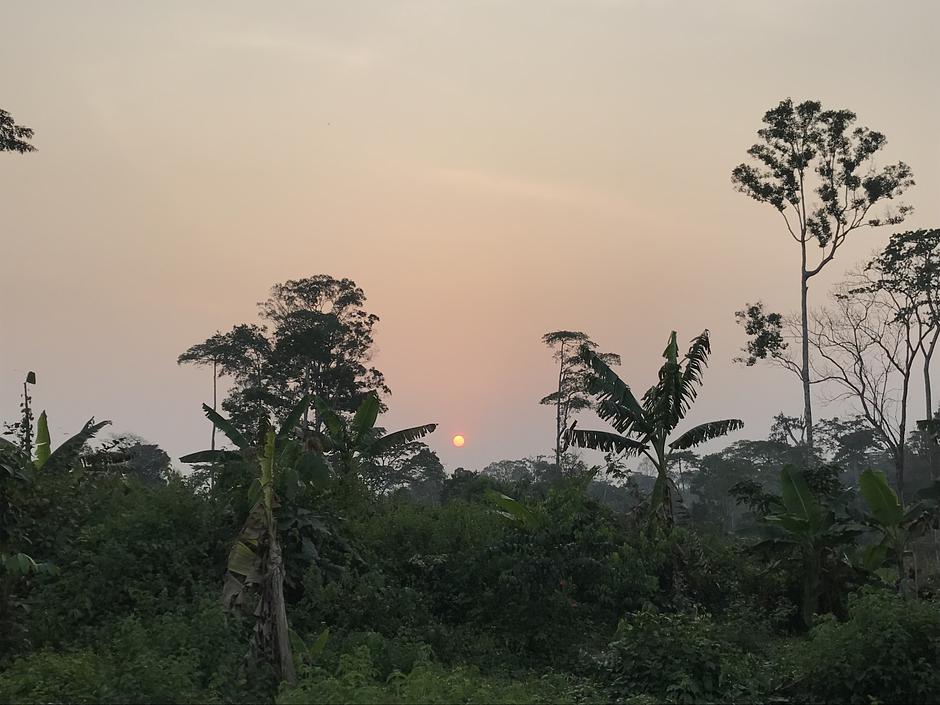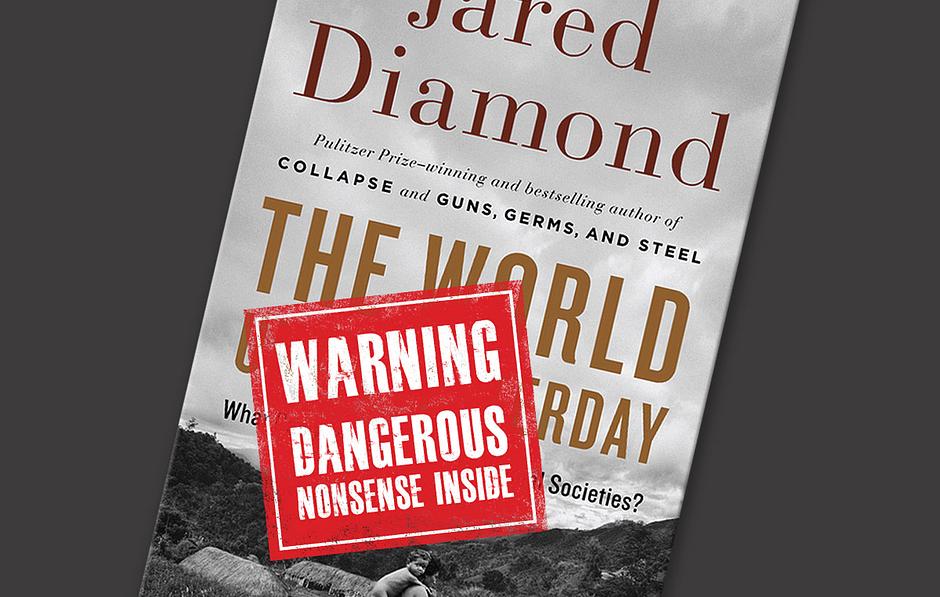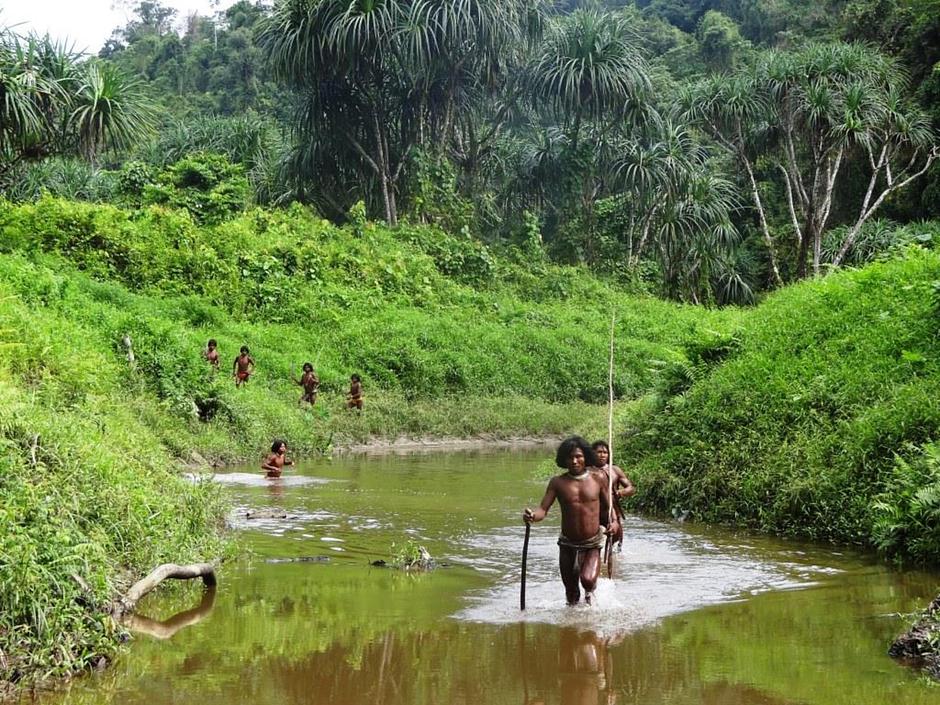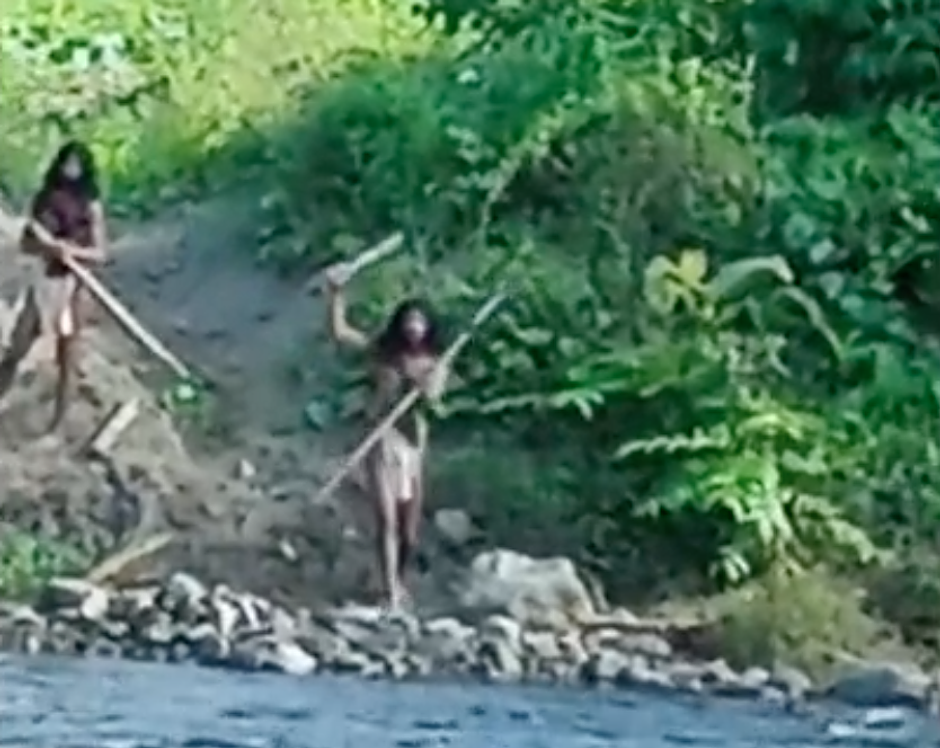The myth of the "Brutal Savage"
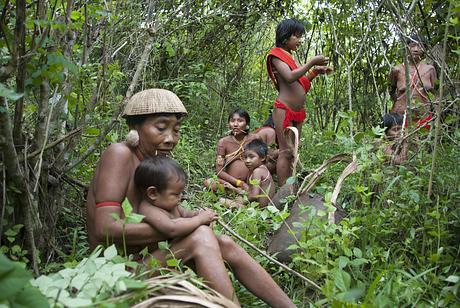
How some writers are pushing the view that tribal people are particularly violent.
Survival exposes the “Brutal Savage” myth by examining the recent work of some “popular science” writers, who claim that tribal peoples live in a state of “chronic” violence.
Steven Pinker (“evolutionary psychologist”)
In The Better Angels of Our Nature (2011), Steven Pinker promotes a fictitious, colonialist image of a backward “Brutal Savage,” which pushes the debate on tribal peoples’ rights back over a century and is still used to justify their destruction. Read more about why Pinker’s “science” is wrong.
Napoleon Chagnon (anthropologist)
Steven Pinker would arguably not have been able to reach the conclusions he does about tribal violence without the highly controversial work of a single anthropologist: Napoleon Chagnon studied the Yanomami tribe from the 1960s, calling them “The Fierce People.” But are the Yanomami really fierce?
Napoleon Chagnon’s view that the Yanomami are “sly, aggressive and intimidating” and that they “live in a state of chronic warfare” has been widely discredited. Nonetheless, both Diamond and Pinker’s conclusions about tribal violence rely heavily on his work.
Jared Diamond (geographer)
Jared Diamond’s 2012 book, The World Until Yesterday is ostensibly about what industrialized people (whom he calls “modern”) can learn from tribal peoples (he calls them “traditional”). His book, however, carries a false and dangerous message – that most tribes engage in constant warfare, both needing and welcoming state intervention to stop their violent behavior. Read more.
Steven Pinker
On 11 June 2013, Truthout published an article by Survival director, Stephen Corry, about Steven Pinker’s book The Better Angels of Our Nature: The Decline of Violence in History and its Causes.
Comment on the Truthout article.
Read the full annotated version here.
Open Democracy published the full version of the article.
Napoleon Chagnon
Truthout has just released an article by Survival director Stephen Corry about Chagnon’s latest book, Noble Savages.
Read part one and part two of the annotated version.
Portrayals of Indians as violent savages remain common. Perhaps the worst recent example of this characterization comes from the controversial U.S. anthropologist Napoleon Chagnon, who carried out fieldwork with the Venezuelan Yanomami from the 1960s.
In his book, Yanomamö: The Fierce People, Chagnon constructed a sensationalist image of the tribe, describing them as “sly, aggressive, and intimidating,” “fierce,” “continuously making war on each other,” and living in a “state of chronic warfare.”
The Fierce People was a best-seller in the USA and is still a standard text for anthropology students today. It is also a key source in many recent popular science books by writers such as Jared Diamond and Steven Pinker, which also promote the myth of the “Brutal Savage.”
Controversy
Despite the popularity of The Fierce People, Chagnon’s findings have been severely criticized by others who have extensive experience of the Yanomami. Many anthropologists, doctors and missionaries that have worked over many decades with the Yanomami simply do not recognize Chagnon’s characterizations, and profoundly disagree with his depiction of the tribe.
On 19 February 2013, Chagnon released his autobiography, Noble Savages: My Life Among Two Dangerous Tribes – The Yanomamö and the Anthropologists.
Many anthropologist specialists in the Yanomami of Venezuela and Brazil have signed an open letter condemning Chagnon’s characterization of the Yanomami.
Eminent anthropologist Marshall Sahlins explains how Chagnon exploited his Yanomami subjects to achieve his aims. Sahlins recently resigned from the US National Academy of Sciences in protest at Napoleon Chagnon’s election to the Academy.
Leading Brazilian professor of anthropology Eduardo Viveiros de Castro says the Yanomami are anything but the nasty, callous, sociobiological robots Chagnon makes them look like.
Prominent anthropologists Philippe Descola and Manuela Carneiro da Cunha have issued statements about Chagnon’s work and Sahlins’s resignation.
Experts wrote to the Daily Telegraph, to protest at an article repeating Chagnon’s views in 2001.
Carlo Zacquini, a Catholic lay missionary who has worked and lived among Yanomami for nearly 50 years, “never found them to be violent.”
The Yanomami speak out
Hear what Davi Kopenawa, a Yanomami spokesman and President of Hutukara, had to say about The Fierce People and Noble Savages in interviews with Survival.
In an excerpt taken from La chute du ciel, Paroles d’un chaman Yanomami, by Davi Kopenawa and Bruce Albert, he discusses the violence of Western societies.
Whilst a few Yanomami may die in conflicts, far more have been killed by outsiders in violent attacks or by the diseases they have brought in.
Between 1989 and 1993 it is estimated that nearly 20% of the Yanomami in Brazil died from diseases introduced by the gold miners. These invasions still pose huge threats to their health and security. Davi Kopenawa warns:
Today our real enemies are the gold miners, the cattle farmers and all those who want to seize our land. Our anger must be directed at them. That’s what I think.
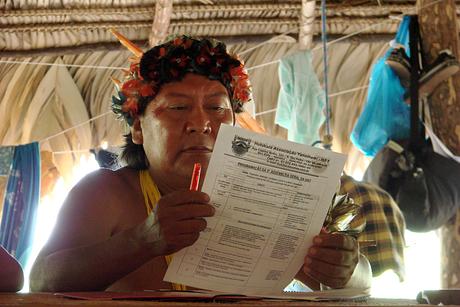 © Luciano Padrão/CAFOD
© Luciano Padrão/CAFOD
Consequences
The greatest tragedy in this story is that the real Yanomami have largely been written out of it, as the media have chosen to focus only on the salacious details of the debate that rages between anthropologists, or on Chagnon’s disputed characterizations. Rarely mentioned is the fact that The Fierce People had disastrous repercussions for the Yanomami, and tribal peoples in general.
Read how Brazil’s military dictatorship was influenced by the characterization of the Yanomami as hostile to each other.
See why UK government refused to fund an education project with the Yanomami.
More recently Chagnon’s research has been used by Jared Diamond in his controversial new book, The World Until Yesterday: What Can We Learn from Traditional Societies? to back his erroneous claim that “most” “traditional” societies like the Yanomami exist in a state of “constant warfare”; that they are far more violent than industrialized societies; and that they welcome “pacification” by the state.
Diamond’s book has been condemned by Survival director Stephen Corry, Indigenous organizations and academics, and his arguments compared to those of European colonists, who sought justification for the brutalities of imperialism.
Further reading
Visit Living Anthropologically blog for a comprehensive guide to what anthropologists are saying about Noble Savages.
Jared Diamond
On 30 January 2013, the Daily Beast published an article by Survival director, Stephen Corry, about Jared Diamond’s book The World Until Yesterday.
Savaging Primitives: Why Jared Diamond’s “The World Until Yesterday” is wrong
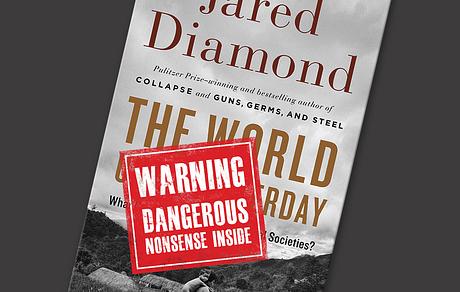
Read the annotated version.
See the short synopsis.
Take Part published a shortened version.
Die Welt published a German translation of the article on 5 February 2013.
Find out what West Papuan tribal leader Benny Wenda thinks of the book.
Listen to a 15-minute interview with Stephen Corry broadcast on 31 January 2013 by WBEZ (formerly Chicago Public Radio).
Read the Guardian article of 3 February 2013: Jared Diamond in row over claim tribal peoples live in ‘state of constant war’
Diamond believes that tribes welcome the imposition of the state.
Wamaxua Awá, one of the most recently contacted people in the world, disagrees.
Find out why angry Papuan leaders demand Jared Diamond apologizes.
See Yale professor James C Scott’s devastating critique in the London Review of Books.
Read anthropologist Ira Bashkow’s review, published in The Times Literary Supplement.
Survival replies
On February 4 2013 Jared Diamond was interviewed on BBC TV about his new book “The World Until Yesterday.” He would not agree to a Survival representative being there to debate his points. He has also given many other interviews (e.g. BBC Radio 3 Nightwaves). We have reproduced some of his claims, and our responses to them.
Further reading on the subject


